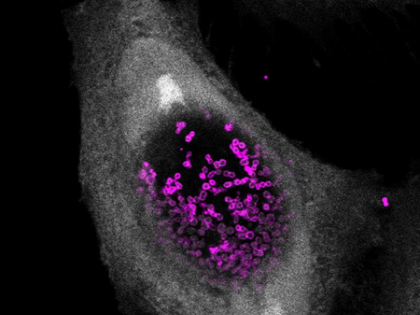Researchers find molecule to kill sexually transmitted chlamydia
By IANS | Updated: May 8, 2025 16:42 IST2025-05-08T16:39:16+5:302025-05-08T16:42:39+5:30
New Delhi, May 8 A team of international researchers has discovered a type of molecule that can kill ...

Researchers find molecule to kill sexually transmitted chlamydia
New Delhi, May 8 A team of international researchers has discovered a type of molecule that can kill chlamydia bacteria -- the world's most common bacterial sexually transmitted disease with 130 million cases a year -- but spare bacteria that are important for health.
The team from Umea University, Sweden, and Michigan State University, US, identified more than 60 possible anti-chlamydia molecules.
Chlamydia is caused by Chlamydia trachomatis bacterium, which has very special properties. Just like viruses, they invade cells in the human body, which then reshape so that they give the bacterium a home where it can grow and multiply.
"No one should have to live with chlamydia. But the problem is that the treatments we have today do not distinguish between dangerous and friendly bacteria. A growing problem is also that more and more bacteria are becoming resistant to today's broad-acting antibiotics," said lead author Barbara Sixt, Associate Professor at the Department of Molecular Biology at Umea.
The researchers searched through large collections of chemical molecules to find molecules that could eradicate the growth of the chlamydia bacterium in human cells in laboratory cultures.
After refined studies, the researchers were able to identify a particularly potent molecule.
The molecule in question was found to be able to inhibit the bacterium's ability to produce fatty acids, which are necessary for its growth.
"There is still a long way to go before we have a new treatment, but this finding may prove very important in developing new antibiotics that are both effective but at the same time gentle on the body,” Sixt said.
Chlamydia often causes mild symptoms but if left untreated can cause long-term damage to the reproductive organs, especially in women. This can cause chronic pain and infertility and can have consequences for pregnancy and childbirth. Chlamydia may also contribute to the onset of cancer of the cervix and ovaries.
Disclaimer: This post has been auto-published from an agency feed without any modifications to the text and has not been reviewed by an editor
Open in app